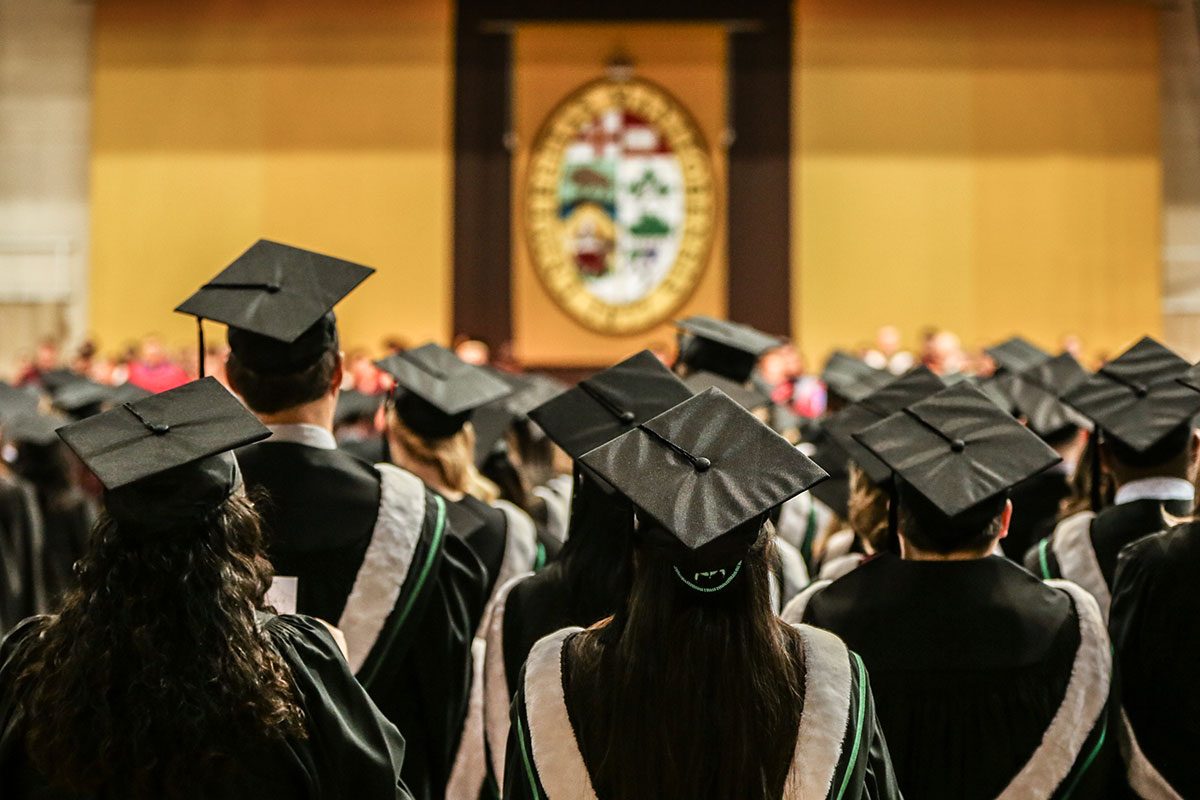
Sharing ‘struggles, experiences, strengths and dreams’ with classmates
Among the more than 300 students who received their parchment during Fall Convocation on Oct. 19 were graduates from the bachelor of social work program at the William Norrie Centre on Selkirk Avenue in Winnipeg’s North End.
Two of these students are Jennifer Roulette and Warda Ahmed, and they both have remarkable stories of achieving success through overcoming significant roadblocks.
Warda Ahmed came to Canada in 2004. She was born in Somalia and raised in India, and knows very well the issues regarding immigration to Canada. Graduating this week from the Inner City Social Work program, she works at the Social Planning Council of Winnipeg with Immigration Partnership Winnipeg.
Warda has worked in the settlement sector of Winnipeg for the past eight years as a Settlement Worker and Life Skills Trainer serving the newcomer community in downtown Winnipeg. Fluent in four languages―English, Hindi, Urdu and Somali―she is a certified interpreter for the Canada Border Services Agency, the Immigration and Refugee Board of Canada, and Citizenship and Immigration Canada.
Ahmed explains that her path to graduation was not an easy one.
“After high school, because my mom couldn’t speak English and was unable to work, I became a primary breadwinner for my family,” says Ahmed. “This meant I couldn’t think of going to university unless I could continue working while studying at the same time. The Inner City program meant the world to me, as I studied subjects about which I am very interested, and the program offered class times and a schedule that allowed me to keep my full-time job.”con“I was able to share my struggles, experiences, strengths and dreams with my classmates, who helped motivate me to continue whenever I felt scared,” adds Ahmed.
Similarly, Jennifer Roulette has had some struggles in her life, but what is most important is that she’s very motivated and has been driving herself hard to achieve her goals.
A single mother of six children (two of whom are foster kids), Roulette has managed to complete her studies and courses towards her Bachelor of Social Work, and will be graduating this week.
“My own experience with social workers―some good and some bad―led me to make up my mind to go into social work so I could help others as well as myself,” she says. “It was a real eye-opener. Going through the program helped me make sense of how I got to where I am, from internalized racism to disenfranchisement within my family itself.”
Roulette had only a Grade 8 education before she dropped out of school as a teenager. She has struggled with abusive relationships, poverty and even homelessness in her life, and wants to ensure her kids have a much better chance of overcoming challenges they might face.
Today, she volunteers with the North Point Douglas Women’s Centre and is involved with the Mama Bear Clan, a community group that patrols the streets in Winnipeg’s Core. One night while on patrol, Roulette was called to assist those affected by a rooming house fire, only to learn that one of her own relatives died in the inferno.
Ahmed says many newcomers feel isolated and not included within our larger society.
This can be because of language barrier or cultural differences, but this becomes a major reason for many newcomers to feel not integrated in their new homes in Canada. They arrive with an urgent need for housing, but because of a lack of guarantors, long waiting lists, subsidized housing options or financial security, they often end up in difficult situations.
Regarding education, Ahmed says: “Newcomers often are faced with situations where their credentials from home countries are not recognized in Canada or they don’t have enough skills to be able to get through basic day-to-day life. Education is a huge need in the newcomer community as it helps immigrants get integrated and be able to achieve basic goals to live a good life in Canada. My own sister lost three years of her university education credentials and had to start things from scratch.”
Ahmed is a devoted Muslim, and since coming to Canada has been involved in education about human rights regarding immigrants and their faith. She has strong opinions about proposed legislation banning the wearing of niqabs, for example, and has advocated for Muslims’ civil rights. She is grateful for the opportunity to live and work in Canada.
“Training and graduating as a Social Worker has taught me values, skills and life lessons that I carry with me in daily life,” says Ahmed. “ I am humbled and extremely grateful that I can do the work I am passionate about, so I can serve people and also take care of my family’s needs.”
Both Ahmed and Roulette were taught by Eveline Milliken of the Faculty of Social Work. She speaks very highly of both students and says they were inspirations and role models.
“All students who overcome barriers to education are remarkable,” she says. “But when a student is the first in their family to graduate from university or displays particular courage, it really is a ‘win’ for all of us.”
Milliken says students like Roulette and Ahmed enrich the University of Manitoba experience for all, displaying a richness of different voices and bringing new perspectives not otherwise presented.
“A classroom at the U of M is a place where all are welcome, and these students represented that perspective very well. Everyone benefited by their presence,” she says.
On the last day of class, Roulette admitted that she experienced some anxiety. Not because of what was to come, but because she realized she had attained her original goal and now needed to set another one.
“I aim to be fully employed soon. Then I can purchase a home and be able to raise my kids in a better environment,” she says. “And I’m going to continue learning and educating myself.”
“I’m definitely going for master’s degree,” she adds, determinedly.






